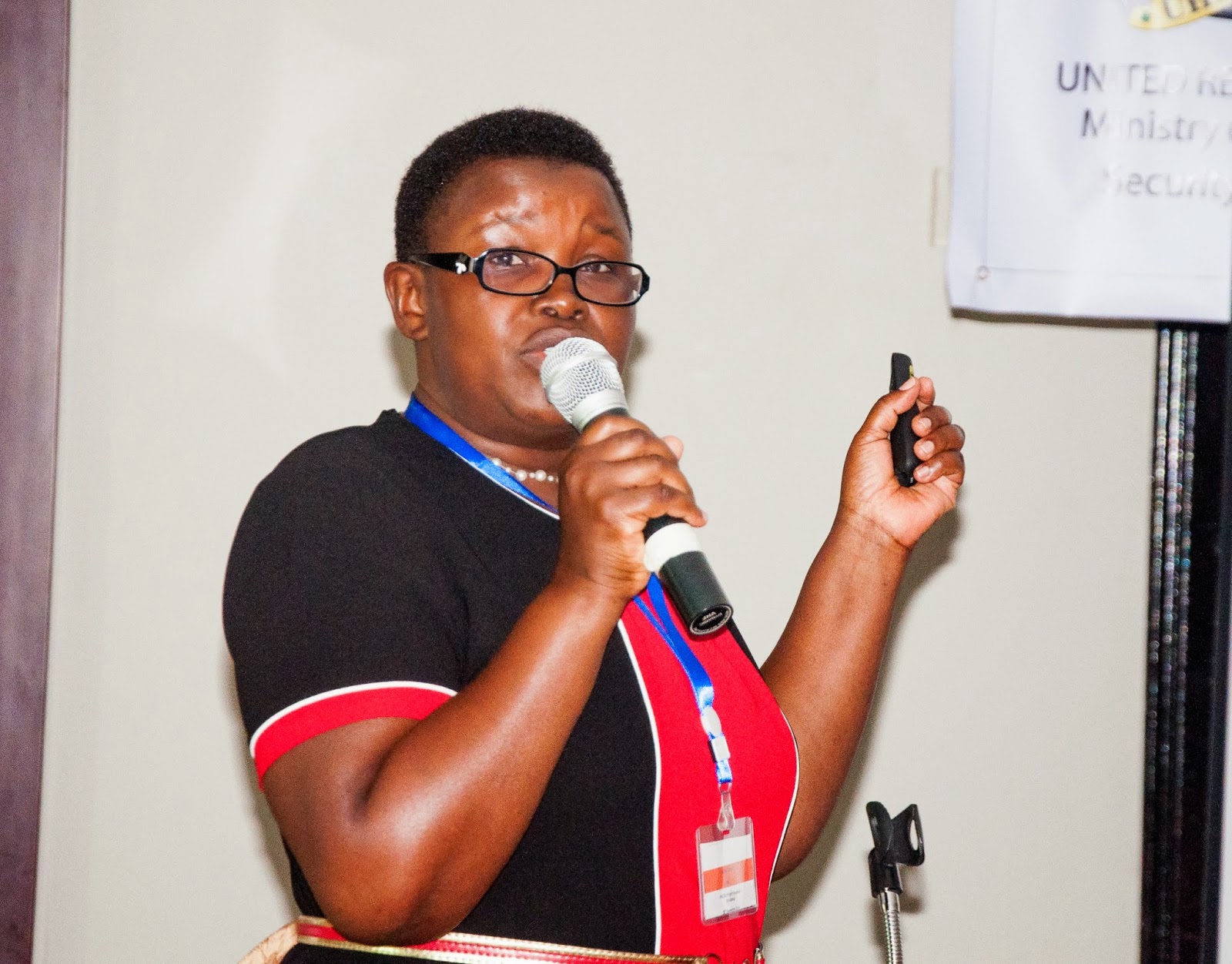 |
| From left: Prof Burton Mwamila and Dr Ylva Hilbur, signing an agreement on banana research at the university campus in Arusha, Tanzania. |
The International
Institute of Tropical Agriculture (IITA) and the pan-African NelsonMandela African Institution of Science and Technology (NM-AIST) have further strengthened their collaboration
on agriculture research and capacity building in Tanzania by signing an agreement
on banana research.
This agreement, which spells out how the two institutions
will work together to tackle the challenges facing banana production in the
country, was recently signed by the IITA
Deputy Director General for Research, Dr Ylva Hilbur, and the NM-AIST Vice
Chancellor, Prof Burton Mwamila, at a ceremony at the university campus in
Arusha, Tanzania.
 |
| Dr Ylva Hilbur, signing the research agreement |
According to
the agreement, NM-AIST will avail land to IITA land to conduct banana breeding to
develop improved varieties that are resistant to pests and diseases and
especially Panama disease (Fusarium) which is devastating banana in the region,
and office space for use by the institute’s staff.
It will also give the institute access to its laboratories
and screen houses to conduct banana research.
IITA on its
part will provide funds to remodel and refurbish the molecular and tissue
culture laboratories including purchasing additional equipment. The institute
will also construct a seed extractor and a banana ripening chamber at the
university. All these facilities will be open to both the staff and students of
the university.
 |
| Prof Mwamila perusing agreement before signing it. |
The
institute further pledged to conduct training for the staff and students at the
university in areas of banana breeding, tissue culture, pest and diseases, and molecular
biology among others.
Speaking at
the agreement signing event, Prof Mwamila said that the university aspired to
become a world-class institution dedicated to the pursuit and promotion of
excellence in Science Engineering and Technology (SET) and their applications
for economic growth and sustainable development in the region by training and
developing world class African scientists and engineers.
He therefore
noted that the collaboration with an international agriculture research center such
as IITA would be very beneficial towards this end. He further said IITA would
support the institute to translate research results into tangible products and
policy briefs to enable wealth creation and sustainable development.
On her part,
Dr Hilbur who is based at the institute’s headquarters in Ibadan, Nigeria, noted that there were numerous opportunities for IITA to collaborate with
NM-AIST in research and in training agriculture researchers.
 |
| Group photo: IITA and NM-AIST teams at the event |
‘Building capacity
of researchers in Africa is a very important component of our work at IITA. This agreement strengthens our already
good collaboration with the university and we are looking forward to even more collaboration in the future to
support the development of the agriculture sector in the country and the
region,’ she said.
 |
| IITA's Drs Ylva and Baijukya touring the TC lab |
Currently
the two institutes are collaborating on research on banana through a project
funded by the Flemish Interuniversity Council, on nitrogen fixation in beans, and
on controlling aflatoxin, a deadly chemical produced by fungi found in crops
such as maize and groundnut.
The new agreement
supplements a Memorandum of Understanding signed between the two institutions
last year in which they agreed to conduct joint research projects, share
scientific information and materials including genetic material for breeding, organize
exchange programs, and jointly supervise postgraduate students.
 |
| Prof Swennen showing the banana field trials. |
Hilbur
was accompanied by amog others IITA Director for Eastern Africa Dr Victor Manyong based at
its Eastern Africa office in Dar es Salaam, Head of IITA Arusha Office, Prof Bekunda Mateete and Prof Rony Swennen who heads IITA’s
banana breeding program based at Arusha. The signing was also witnessed
by key staff of the university.
.gif)





.JPG)
.jpg)


